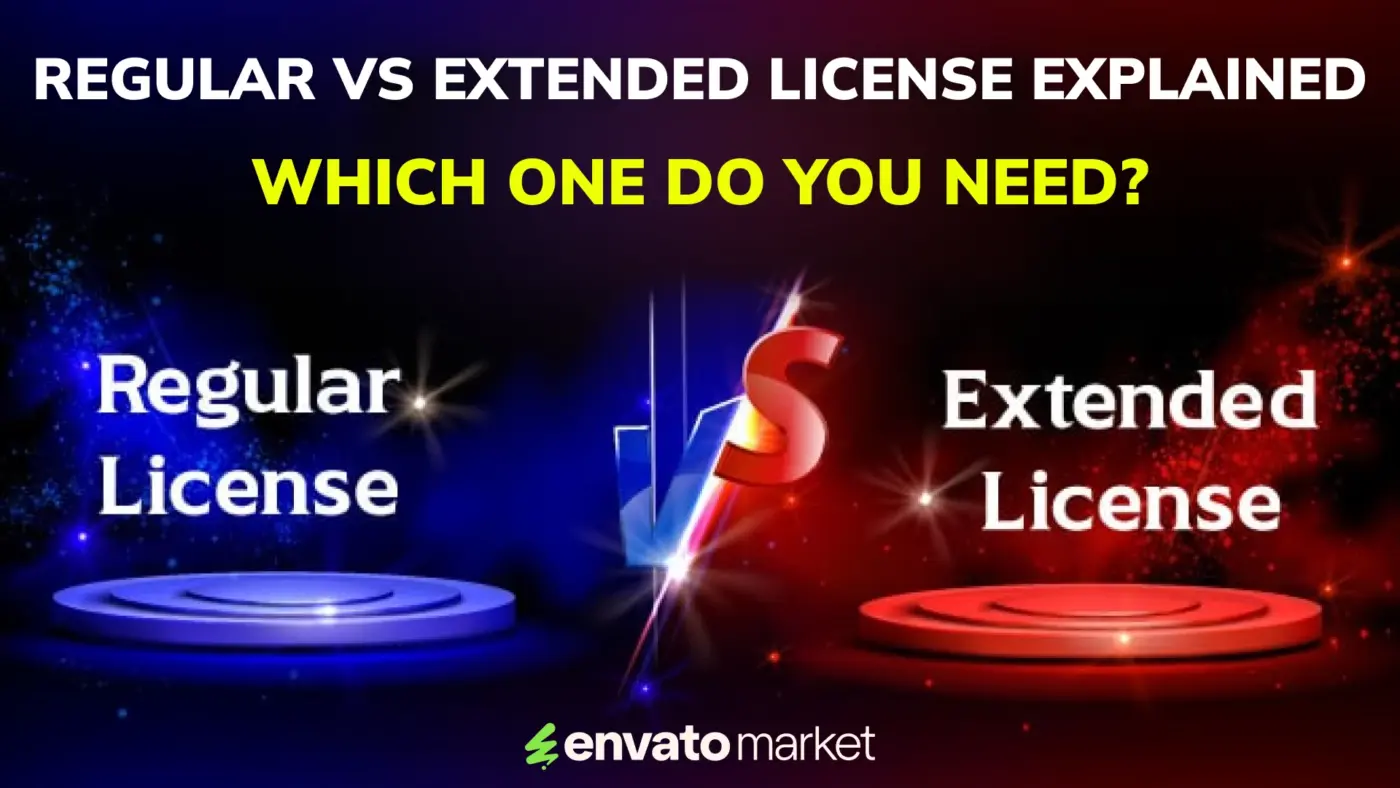Regular vs Extended License Explained: Which One Do You Need?

When buying digital products like themes, templates, or plugins, you often face two license options: Regular License and Extended License. Choosing the right license is crucial because it affects how you can use the product, whether you can charge users, and your legal protection. In this article, we will explain the differences in easy-to-understand terms, helping you make the right choice for your project.
What is a Regular License?
A Regular License is perfect for projects where users do not pay to access the product. It allows you to use the item for a single end product but comes with some limits.
Key Features of a Regular License:
- Single Project Use: You can use the product for one website, app, or project.
- Free Access Only: You cannot charge users for access. For example, if you create a personal blog using a theme, visitors must be able to access it for free.
- No Resale: You cannot sell the product as-is or include it in a paid product.
- Example: Using a purchased WordPress theme to build a free portfolio or blog.
Why Choose a Regular License?
If your goal is personal use, free projects, or non-commercial websites, the Regular License is enough. It keeps your cost low while legally covering your use of the product.
What is an Extended License?
An Extended License allows you to charge users or sell the product as part of a paid service. It is suitable for commercial projects where the product contributes to revenue.
Key Features of an Extended License:
- Single Project Use with Paid Access: You can charge users for accessing your website, app, or service.
- Commercial Rights: You may include the product in a paid platform, subscription service, or SaaS application.
- Legal Protection: Purchasing an extended license ensures your project complies with copyright laws.
- Example: Using a theme to build a subscription-based website where users pay for premium content.
Why Choose an Extended License?
If your project generates income or paid access, an Extended License protects you from legal issues while allowing full commercial use.
Regular vs Extended License: A Simple Comparison
| Feature | Regular License | Extended License |
| Use Case | Free or non-commercial projects | Paid or commercial projects |
| Charge Users | Not allowed | Allowed |
| Resale/Distribution | Not allowed | Allowed |
| Number of Projects | One project per license | One project per license |
| Legal Safety | Basic coverage | Full commercial protection |
Summary:
- Free projects → Regular License
- Paid projects → Extended License
Which License is Right for You?
Choosing the right license is simple when you consider your project goals. Ask yourself:
- Will you charge users for access?
- No → Regular License
- Yes → Extended License
- Will the product be part of a paid service or app?
- No → Regular License
- Yes → Extended License
- Will the product be resold or redistributed?
- No → Regular License
- Yes → Extended License
- Are you using the product for multiple projects?
- Each project requires a separate license, whether Regular or Extended.
Practical Examples
Scenario 1: Personal Blog
- Product: WordPress theme
- License: Regular
- Usage: Visitors access the website for free.
- Outcome: License is valid, cost-effective, and legal.
Scenario 2: Paid Membership Website
- Product: Premium plugin
- License: Extended
- Usage: Users pay for access to premium content.
- Outcome: Legal compliance ensured, project monetization allowed.
Importance of Following License Rules
Using the wrong license can cause legal trouble and copyright violations. For instance:
- Using a Regular License on a paid project can lead to fines or take-down requests.
- Extended License ensures compliance and protection for commercial use.
Tip: Always check the license terms on the marketplace or vendor site. Some platforms like Envato may have specific rules for each product.
Conclusion
Choosing the right license is essential for both legal protection and project success.
- Regular License: Perfect for free projects, personal blogs, or non-commercial use.
- Extended License: Necessary for monetized websites, apps, or paid services.
Always evaluate your project goals and user access plans before purchasing a license. Following these guidelines ensures you stay compliant while using digital products effectively.

